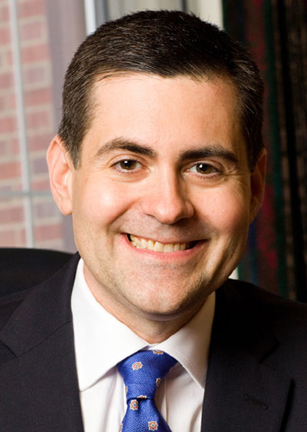
NASHVILLE (BP) — America’s southern border is engulfed in a humanitarian crisis of refugees fleeing violence in Central America, many of them unaccompanied children, to seek safety. As Christians, we must recognize both the complexity of this situation and what it means to be people of justice and mercy.
I say that the situation is complex because some Christians would like a simple fix. Some would, it seems, like to hear that some organized mission trips to the border would alleviate the crisis. This ignores the depths of the problem.
There is good work caring for human need at the border, much of it by Christians, but until the United States government steps in to solve the presenting problem, the crisis will go on.
Some would suggest that the border crisis should make us more fearful of immigration and of immigrants. This shows us, they would say, that the border is porous and any reform of our immigration system would lead to more children in harm’s way.
But these children (and their mothers) fleeing from Central America is a very different problem from that of Mexican migrants seeking work and opportunity. The problem is more akin to the situations we’ve seen on the African continent, with warlords dealing in human trafficking. These children and families are fleeing a drug war exploding in violence all around them.
Moreover, it’s the incoherence of the immigration system that fuels the problem, thus empowering the cartels and the traffickers. Immigration reform isn’t about making immigration easier. It’s about making the system coherent so that we know who is here lawfully, and who isn’t. That done, reform is to try to make a way for those here under our “don’t ask, don’t tell” policy to come out of the shadows and, where possible, make things right.
As Christians, we don’t have to agree on all the details of public policy to agree that our response ought to be, first, one of compassion for those penned up in detention centers on the border. These people are not seeking the overthrow of our government; they are, most of them, seeking the sort of freedom and opportunity they have heard is characteristic of the American project.
When responding to the vulnerable, our greatest obstacle isn’t the question of knowing what to do. Our greatest obstacle is fear. The Samaritan in Jesus’ parable (Luke 10:27-37) has every reason to be afraid on the road to Jericho. The presence of a beaten man tells him there are robbers around, potentially hiding in the caves around him. Fear, though, is cast out by love; love is not cast out by fear.
The Samaritan has no reason to claim accountability for this terrorized neighbor. He does so because he treats him, a stranger, as though he were kin. The lawyer questioning Jesus rightly sees this as showing mercy (Luke 10:37). And Jesus says simply, “Go and do likewise.” That’s why Christians are at the border, ministering to people. And that’s why all of us should be praying for those in harm’s way on the border, and those trembling in fear in violence-torn Central American countries, as well as those exploited by traffickers and cartels.
The situation at the southern border is frightening indeed, for multiple reasons. Border security is important for the physical safety of any nation, and the care of those fleeing danger is important for the moral integrity of any people.
The Gospel doesn’t fill in for us on the details on how we can simultaneously balance border security and respect for human life in this case. But the Gospel does tell us that our instinct ought to be one of compassion toward those in need, not disgust or anger.
The border crisis will take careful work by government leaders. And it will take a church willing to pray and to love. Our answer to the border crisis cannot be quick and easy. But, for the people of God, our consciences must be informed by a Kingdom more ancient and more permanent than the United States. Our response cannot be to say, in Spanish: “And who is my neighbor?” (Luke 10:29).
–30–
Click here to access this article in Spanish. Russell D. Moore is president of the Southern Baptist Ethics & Religious Liberty Commission. This article first appeared at his Moore to the Point website.
















